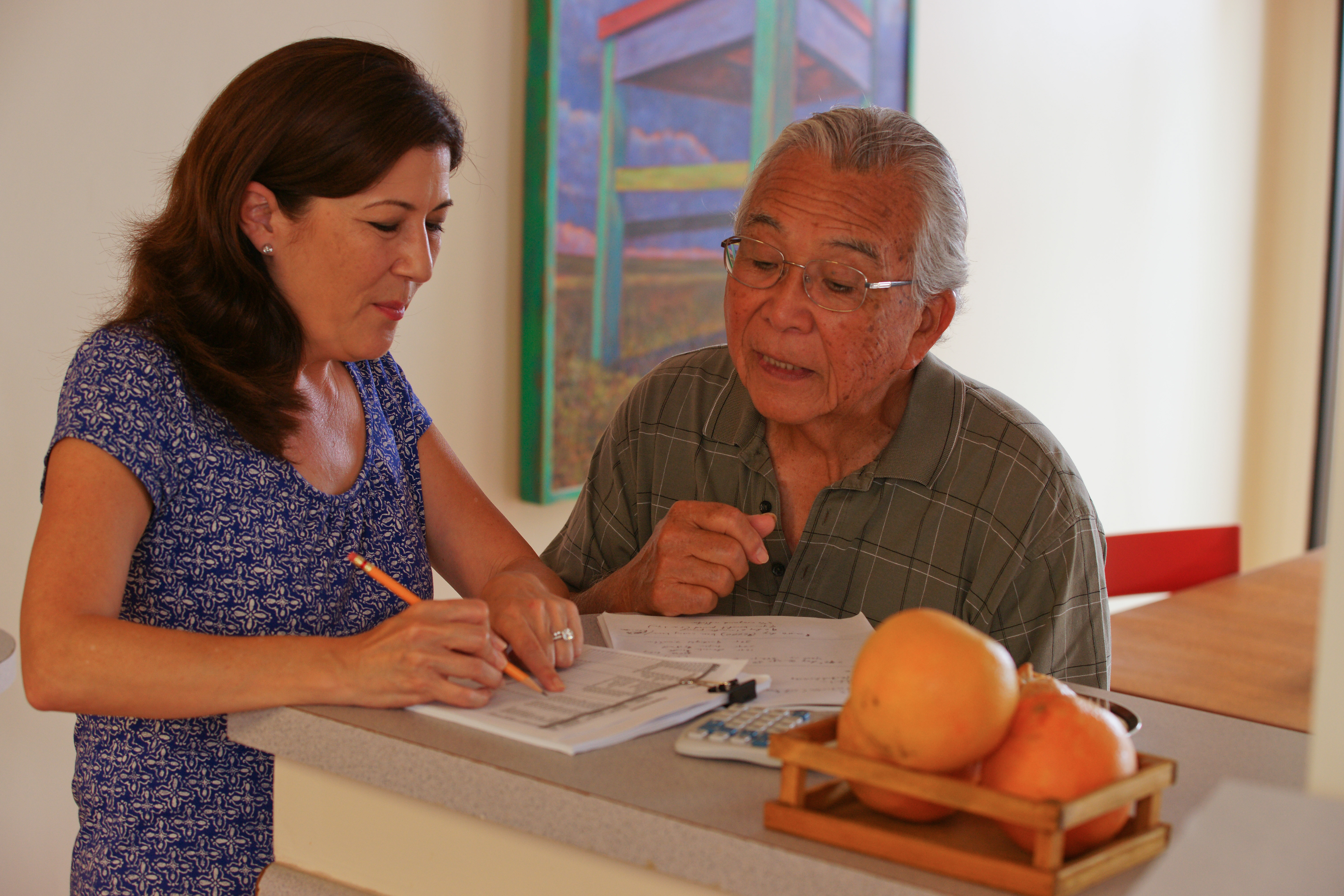AARP Eye Center

A new survey exploring the views of older Hawaii residents on long-term care shows that nearly two-thirds (64 percent) of people 50+ are not confident they can afford to pay for one year in a nursing home. Fifty percent of respondents say they are not confident they can afford the cost of care for one year in their home. The survey of 800 residents statewide—more than half of whom reported annual household income of less than $75,000—is the latest evidence that many residents are unsure how they’ll pay for their care needs as they get older.
The survey indicates that while nearly six in ten older residents (59 percent) believe it likely they will need some form of care in the future, less than 40 percent say they have the personal savings or insurance coverage to help cover their costs. The findings point to an elder-care crisis in the making – as the vanguard of island boomers approaches their 70s and the cost of long-term care extends beyond the reach of many.
“There’s a growing realization among residents that the costs associated with our aging population will have to be met by individuals themselves,” said Stuart Ho, former chair of the Hawaii Long-Term Care Commission which last year delivered a dire assessment of the state’s long-term care system to the Legislature along with numerous recommended reforms. “Yet, many older adults are apparently in denial about who will provide the care they’ll likely need and how they’re going to pay for it.”
Among the key findings of the survey:
- 74 percent of residents agree with the statement, “I do not want to depend on my family or friends for my long-term care needs.” Yet nearly half of those surveyed (49 percent) also agree with the statement, “My family or friends will take care of me if I need long-term care.”
- Among the sources of payment residents believe they will rely on most to pay for long-term care are Medicaid (21 percent), personal savings and assets (17 percent), long-term care insurance (16 percent), and Social Security (12 percent).
- Among residents who said they do NOT have a private long-term care insurance policy, the most frequently cited reason (38 percent) was that coverage is too expensive.
- In response to whether they would support or oppose the establishment of a mandatory public long-term care insurance program for working residents, more than twice as many (59 percent) respondents said they would support than were opposed (27 percent).
At the Legislature this session, lawmakers considered just such a proposal at the recommendation of the Long-Term Care Commission, and approved $380,000 for an actuarial study of a mandatory long-term care insurance program for Hawaii workers, which would be paid for by worker premiums rather than with state general revenues.
The long-term care survey was conducted by telephone November 9 – 26, 2012, with Hawaii residents age 50-plus, 56 percent of whom were not AARP members. More than 40 percent of residents surveyed were between 50 and 59 years old. The survey breaks responses down by county and has a margin of error of ± 3.5 percent.
The survey is available for public review at http://www.aarp.org/Hawaiilongtermcaresurvey2013
AARP is a nonprofit, nonpartisan membership organization for people 50+ with 148,000 members in Hawaii. We fight on issues that matter to you and your family – including the high cost of long-term care and access to affordable, quality health care for all generations; provide the tools needed to save for retirement; and serve as a reliable information source on issues critical to older Americans.























































